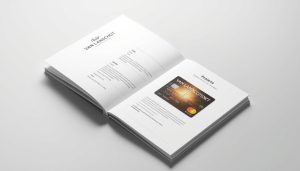Getting your first credit card is a significant milestone in your financial journey. Whether you’re a young adult starting to build your credit history or someone looking to establish financial independence, a first credit card can be a valuable tool. Understanding how to use it wisely is key to avoiding common pitfalls and setting yourself up for success.
In Australia, there’s a wealth of options available, each with varying features, rewards, and interest rates. Choosing the right first credit card can seem overwhelming, but with a bit of research, you can find one that aligns with your needs and spending habits. Consider your lifestyle and financial goals to make an informed decision.
It’s important to start by comparing different offers, paying particular attention to introductory rates and annual fees. Make sure you understand the conditions around repayments to maintain a healthy credit score. With responsible use, your first credit card can not only offer convenience but also pave the way to more financial opportunities in the future.
Understanding the Basics
Entering the world of credit cards involves understanding key terms and concepts. Credit cards are essentially a form of revolving credit, which means you have a set credit limit you can use and repay consistently. Familiarity with the terms such as ‘balance’, ‘interest rate’, and ‘credit limit’ is crucial for managing your credit card effectively.
The interest rate on credit cards typically exceeds other forms of credit, reflecting the convenience of accessing a line of credit at any time. As a result, carrying a balance from month to month can quickly escalate the amount owed. Consequently, it’s advised to pay off the balance in full each month to avoid high interest charges.
Finally, understanding how billing cycles and minimum payments work is essential. These factors directly impact your financial management strategies and ultimately influence your credit score. Responsible usage shows potential lenders your reliability as a borrower.
Choosing the Right First Credit Card
There are several features to consider when selecting your first credit card. Firstly, examine the annual fees associated with the card. Some cards come with a zero annual fee, while others require a yearly charge in exchange for rewards or perks. Weigh these factors against your spending habits to determine if the benefits outweigh the costs.
Additionally, consider the rewards or cashback options offered by different cards. Some credit cards provide points for every dollar spent, which can be redeemed for travel, shopping, or discounts. If rewards align with your lifestyle, these can be an attractive option for maximising the value of your expenses.
Lastly, look at the introductory offers many credit card companies entice new customers with. These might include lower interest rates or bonus points. However, be mindful of how terms change after the introductory period and ensure the card remains beneficial in the long term.
Building a Healthy Credit Score
One of the primary advantages of using a credit card is the opportunity to build your credit score. A good credit score can assist you in securing better interest rates on loans, renting a property, or even landing a job. Responsible credit card usage is key to nurturing this asset.
Paying your balance on time is crucial. Late payments can significantly affect your credit score and might result in penalty fees. Setting up automated payments or reminders can help you stay on top of your due dates, ensuring you maintain a solid payment history.
Furthermore, keeping your credit utilisation ratio low is important. This ratio assesses how much credit you’re using against your available limit. Aim to use less than 30% of your total credit limit to positively impact your credit score.
Best no-annual-fee credit cards in 2025 for Australians💡
Avoiding Common Pitfalls
One common mistake first-time credit card users make is overspending. The ease of access to funds can lead to spending beyond one’s means. Setting a budget and tracking expenses helps in maintaining financial discipline and prevents falling into debt.
Another pitfall is ignoring the terms and conditions of the credit card agreement. This document outlines necessary information about fees, charges, and penalties. Familiarising yourself with these details can prevent unexpected costs and aid in managing your finances effectively.
Lastly, it’s essential to regularly review your credit card statements for any discrepancies. Early detection of errors or fraudulent activities can save you from potential financial setbacks. Make it a habit to check your statements every month.
Conclusion
In conclusion, obtaining your first credit card is a significant step in achieving financial mobility and independence. By understanding the basic concepts, choosing the right card, building a healthy credit score, and avoiding common pitfalls, one can effectively harness the benefits of credit cards. This not only aids in immediate financial management but also lays a solid foundation for future financial opportunities. With careful planning and responsible handling, your first credit card experience in Australia can be both rewarding and empowering.




